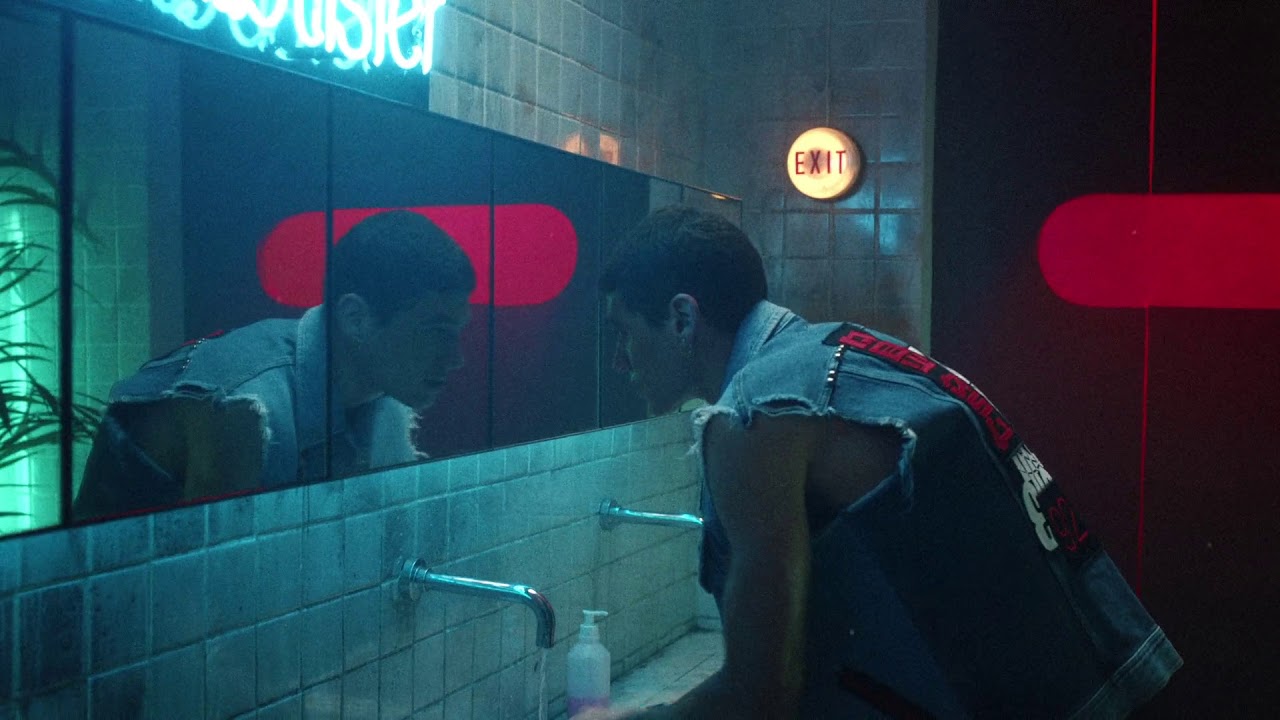Diesel is a globally renowned fashion brand that has captivated the industry with its rebellious spirit and innovative approach. Since its inception in 1978, Diesel has been at the forefront of denim and casual clothing, pushing boundaries and challenging conventional fashion norms. In this article, we delve into the details of the Diesel brand, exploring its unique history, distinctive style, and influential presence in the fashion world.
Diesel was founded by Renzo Rosso, an Italian entrepreneur with a vision to disrupt the fashion industry. From the beginning, Diesel embraced a rebellious and non-conformist attitude, positioning itself as an alternative to traditional luxury brands. The brand’s name itself reflects this rebellious spirit, evoking a sense of energy and individuality.
Diesel initially gained recognition for its expertise in denim. The brand revolutionized the denim market by introducing innovative techniques, washes, and treatments, creating unique and edgy designs. Diesel’s commitment to craftsmanship and quality has made its denim highly sought after. The brand continues to experiment with new materials, technologies, and fits, pushing the boundaries of what denim can be.
Diesel is renowned for its bold and distinctive style, characterized by a fusion of vintage inspirations, urban influences, and a touch of rock ‘n’ roll attitude. The brand’s designs often feature daring cuts, unexpected details, and a mix of contrasting elements. Diesel embraces a sense of individuality and self-expression, encouraging wearers to confidently embrace their own personal style.
Diesel has established a strong global presence, with retail locations spanning across major cities worldwide. The brand offers a diverse product range, including not only denim but also ready-to-wear clothing, accessories, footwear, and fragrance. Diesel’s product offerings cater to both men and women, providing a wide array of options for fashion enthusiasts seeking distinctive and trendsetting pieces.
Diesel’s marketing campaigns are known for their provocative and thought-provoking nature. The brand’s advertisements and promotions often challenge societal norms and celebrate individuality. Diesel’s bold and sometimes controversial campaigns have garnered attention and sparked conversations, reinforcing its rebellious image and capturing the interest of its target audience.
Diesel has made a significant mark in the fashion industry by infusing rebellion, innovation, and individuality into its brand DNA. With its mastery of denim, bold and distinctive style, global presence, provocative marketing, and commitment to sustainability, Diesel continues to be a prominent force in the fashion world. The brand’s ability to evolve and stay true to its rebellious roots has allowed it to consistently resonate with fashion-forward individuals seeking unique and trendsetting pieces.
Diesel Marketing Strategies: A Dynamic Fusion of Innovation and Rebelliousness
Diesel has been widely recognized for its distinctive style, rebellious spirit, and innovative approach to marketing. With a focus on challenging norms and embracing individuality, Diesel has successfully carved out its niche in the competitive fashion industry. In this article, we explore the detailed marketing strategies employed by Diesel to create a strong brand identity and resonate with its target audience.
Embracing a Rebellious Brand Image: Diesel’s marketing strategy centers around cultivating a rebellious and non-conformist brand image. The brand embraces an edgy and provocative tone, challenging conventional beauty standards and societal norms. Diesel’s marketing campaigns often feature controversial and thought-provoking advertisements that spark conversations and leave a lasting impression. By positioning itself as a brand that encourages self-expression and celebrates individuality, Diesel has effectively attracted a loyal following of customers who resonate with its rebellious ethos.
Creative and Provocative Advertising Campaigns: Diesel is renowned for its creative and unconventional advertising campaigns. The brand collaborates with renowned photographers, directors, and artists to create visually striking and engaging content. Diesel’s advertisements often convey powerful messages, addressing social issues, embracing diversity, and pushing boundaries. By leveraging provocative imagery, witty slogans, and impactful storytelling, Diesel captures the attention of its target audience and leaves a lasting impression.
Influencer and Celebrity Partnerships: Diesel strategically collaborates with influencers and celebrities who embody the brand’s rebellious and fearless spirit. By associating with individuals who have a strong personal brand and a large following, Diesel amplifies its reach and credibility. Influencers and celebrities often wear Diesel’s designs, share their love for the brand on social media, and participate in Diesel’s marketing campaigns. These partnerships generate buzz, enhance brand awareness, and attract new customers who aspire to emulate their favorite influencers or celebrities.
Digital and Social Media Engagement: Diesel recognizes the power of digital platforms and social media in connecting with its target audience. The brand maintains an active presence on various social media channels, including Instagram, Facebook, and YouTube, where it shares visually appealing and engaging content. Diesel effectively leverages user-generated content, encourages fan participation through hashtags and contests, and interacts with its online community. This approach not only creates a sense of belonging among customers but also increases brand visibility and fosters a strong online presence.
Retail Experience and Store Design: Diesel’s marketing strategy extends beyond advertising and digital channels to create an immersive retail experience. The brand’s store designs are carefully curated to reflect the rebellious and innovative nature of the brand. Diesel stores often feature industrial aesthetics, unique visual merchandising displays, and interactive elements that encourage customer engagement. By creating a distinctive and memorable in-store experience, Diesel enhances its brand image and builds a loyal customer base.
Collaborations and Limited Edition Collections: Diesel frequently collaborates with other brands, designers, and artists to create limited edition collections and exclusive collaborations. These partnerships allow Diesel to tap into different markets, attract new customers, and create a sense of exclusivity. Collaborations with renowned names in fashion, music, and art generate excitement and anticipation among Diesel’s target audience, resulting in increased brand exposure and sales.
Diesel’s marketing strategies epitomize its rebellious and innovative brand identity. By embracing a provocative brand image, creating impactful advertising campaigns, leveraging influencer partnerships, engaging customers through digital platforms, curating immersive retail experiences, and undertaking collaborations, Diesel effectively communicates its ethos of individuality and challenges conventional fashion norms. Through its dynamic marketing strategies, Diesel continues to capture the attention of its target audience, solidifying its position as a fashion brand that embraces rebellion, creativity, and self-expression.
Decoding the Marketing Mix of Diesel
Diesel has achieved global success through a well-executed marketing mix. By carefully integrating the elements of product, price, place, and promotion, Diesel has solidified its position in the competitive fashion industry. In this article, we delve into the detailed marketing mix of Diesel, exploring how the brand strategically employs each element to connect with its target audience and drive brand loyalty.
Product Strategy: Diesel’s product strategy revolves around creating fashion-forward, high-quality garments that reflect its rebellious brand identity. The brand offers a diverse range of products, including denim, ready-to-wear clothing, footwear, accessories, and fragrances. Diesel’s designs are characterized by their distinctive style, bold aesthetics, and innovative approaches to fabric treatments and washes. By consistently delivering products that align with its brand image and resonate with its target audience, Diesel has built a strong reputation for fashion-forward and trendsetting collections.
Price Strategy: Diesel positions itself as a premium fashion brand, commanding higher price points that reflect the quality, craftsmanship, and unique design elements of its products. The brand’s pricing strategy aligns with its rebellious image and target market of fashion enthusiasts seeking distinctive and innovative styles. While Diesel’s products are priced at a premium level, the brand occasionally offers limited-time promotions and discounts to attract customers and create a sense of exclusivity.
Place Strategy: Diesel employs a selective distribution strategy to maintain control over its brand image and ensure its products are available in desirable locations. The brand operates its flagship stores in prominent fashion capitals and prestigious shopping destinations, providing customers with an immersive retail experience that aligns with Diesel’s rebellious aesthetic. Additionally, Diesel strategically partners with high-end department stores and multi-brand retailers to expand its reach and cater to a wider customer base. The brand has also embraced e-commerce, establishing a strong online presence that allows customers to access its products conveniently.
Promotion Strategy: Diesel’s promotion strategy is characterized by its bold and provocative marketing campaigns that challenge traditional norms and ignite conversations. The brand’s advertisements, both print and digital, feature visually striking imagery, witty slogans, and impactful storytelling. Diesel leverages social media platforms, influencers, and celebrities to amplify its reach and engage its target audience. The brand actively participates in industry events, collaborations, and sponsorships, aligning itself with cultural trends and reinforcing its rebellious brand image. Diesel’s promotion strategy successfully creates buzz, generates brand awareness, and fosters a loyal following.
People and Experience: Diesel recognizes the importance of providing exceptional customer experiences. The brand invests in well-trained staff who embody Diesel’s rebellious and customer-centric ethos. In Diesel stores, customers are immersed in an environment that reflects the brand’s identity through unique store designs, interactive displays, and engaging experiences. Diesel strives to create a sense of community and authenticity, fostering a connection between its customers and the brand.
Diesel’s marketing mix is a powerful combination of product excellence, premium pricing, selective distribution, bold promotion strategies, and exceptional customer experiences. By continuously innovating in design, embracing its rebellious spirit, strategically positioning its products, and leveraging impactful marketing campaigns, Diesel has established itself as a fashion brand that resonates with fashion-forward individuals seeking edgy and innovative styles. The successful execution of Diesel’s marketing mix has propelled the brand’s growth and cemented its position as a global leader in the fashion industry.
Unveiling the STP Analysis of Diesel
Diesel has captured the hearts of fashion enthusiasts worldwide with its rebellious spirit and innovative designs. Behind its success lies a well-crafted Segmentation, Targeting, and Positioning (STP) analysis. In this article, we delve into the detailed STP analysis of Diesel, exploring how the brand identifies its customer segments, targets specific markets, and strategically positions itself to differentiate in the competitive fashion industry.
Segmentation: Diesel employs various segmentation strategies to identify distinct customer groups. The brand recognizes that its target market consists of individuals who appreciate unique and rebellious fashion, embracing individuality and self-expression. Diesel’s segmentation can be analyzed based on several factors:
a) Psychographic Segmentation: Diesel targets fashion-forward individuals who value self-expression, creativity, and non-conformity. These customers are attracted to Diesel’s rebellious brand image and seek unique and innovative fashion pieces.
b) Demographic Segmentation: Diesel caters to a diverse range of age groups, primarily focusing on millennials and Gen Z. These generations are more likely to embrace Diesel’s rebellious and trendsetting fashion philosophy.
c) Geographic Segmentation: Diesel’s target market is not limited to a specific geographic location. The brand has a global presence, attracting customers from various regions who align with its rebellious and fashion-forward ethos.
Targeting: Diesel employs a concentrated targeting strategy, focusing on capturing the attention and loyalty of its identified customer segments. By honing in on a specific target market, Diesel can better understand their needs, preferences, and purchasing behaviors. The brand strategically tailors its product offerings and marketing efforts to cater to the desires of its target audience. Diesel’s target market includes fashion enthusiasts who value unique and innovative fashion, crave self-expression, and appreciate the brand’s rebellious identity.
Positioning: Diesel positions itself as a rebellious and innovative fashion brand that challenges conventions and embraces individuality. The brand’s positioning is shaped by several key elements:
a) Unique Design and Styling: Diesel’s distinctive and edgy designs, characterized by bold aesthetics, unconventional cuts, and innovative fabric treatments, differentiate it from competitors. The brand appeals to customers seeking fashion that pushes boundaries and allows for self-expression.
b) Rebellious Brand Image: Diesel embraces a rebellious and non-conformist brand image that resonates with its target audience. The brand’s provocative marketing campaigns, bold advertising, and association with underground subcultures reinforce its positioning as a symbol of rebellion and individuality.
c) Quality and Craftsmanship: Diesel emphasizes the quality and craftsmanship of its products, ensuring that customers receive durable and well-made fashion pieces. This positioning differentiates Diesel from fast fashion brands and solidifies its reputation as a brand that values longevity and sustainability.
d) Innovation and Creativity: Diesel positions itself as a fashion brand at the forefront of innovation and creativity. By constantly pushing boundaries and experimenting with new designs, washes, and fabric treatments, Diesel appeals to customers who seek fashion that is ahead of the curve.
Diesel’s STP analysis demonstrates the brand’s strategic approach to capturing the fashion market by targeting rebellious and fashion-forward individuals. Through effective segmentation, targeting, and positioning strategies, Diesel identifies its ideal customers, tailors its products and marketing efforts accordingly, and positions itself as a leading fashion brand known for its rebellious spirit, innovation, and quality. Diesel’s ability to understand and cater to the needs of its target audience has allowed the brand to maintain its prominence and build a loyal following in the competitive fashion industry.
Also Read: Marketing Strategies, Marketing Mix and STP of Balmain Paris
To read more content like this, subscribe to our newsletter






